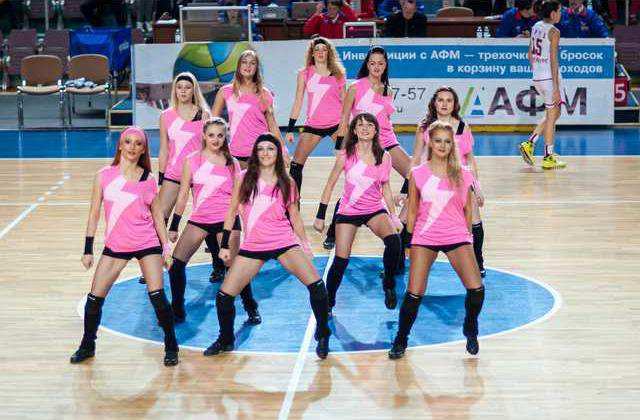Every year around the first part of May, my childrens elementary school sends out fliers for a junior cheerleading camp and tryouts sponsored by the local high school. I know when the flier has arrived because each year my oldest daughter, Aspen, makes it known by waving it high so I can see, all the while excitedly asking if she can please try out.
My answer has always been the same: a simple, Naw, you dont want to be a cheerleader.
My short, quick response has always worked that is, until this year when Aspen asked me why she wouldnt want to be a cheerleader.
I was caught off guard, and I began delivering a response that even I couldnt believe was coming out of my mouth. I told her about how she wouldnt want to hang out with those types of girls because they were usually mean. I even said something along the lines of, Why would you cheerlead when you are so good at sports? Dont you want to play a real sport?
It didnt help that the flier came home on the day that a recent cheerleading controversy was all over the news when the University of Washington posted a picture of the acceptable appearance for cheerleading tryouts, including such things as bearing ones midriff, wearing short shorts, and having a spray tan, perfectly manicured nails and nearly flawless hair and makeup.
I began adding the recent controversy to my response when I looked at my daughter and realized that she was none of those things, which was what would make her the perfect cheerleader.
Aspen is small but very strong and can flip, tuck, twirl and bend like theres no tomorrow. She plays many sports well but is the biggest cheerleader to her brothers when they are competing because she knows the game and is loyal to whichever team her brothers are on.
Aspen has a dimpled smile that lights up the room, and her smile is topped only by her kindness and compassion toward others. She has also always been very modest in her dress and has inherited my dislike for hair products and makeup.
At that moment, I realized that none of my ramblings were correct. I was the problem, and I needed to stop stigmatizing something with complete untruths.
The next day, I found myself taking my daughter to the cheer tryouts, where we were met by kind and caring mothers with their daughters who were also kind. I saw athletic girls who displayed the same carefully crafted talents that my daughter has.
And as I left Aspen in the gym that day, I felt like she was where she belonged. She was in her element, and she was beaming.
I may possibly have a cheerleader on my hands in the very near future, and I couldnt be more excited.
My answer has always been the same: a simple, Naw, you dont want to be a cheerleader.
My short, quick response has always worked that is, until this year when Aspen asked me why she wouldnt want to be a cheerleader.
I was caught off guard, and I began delivering a response that even I couldnt believe was coming out of my mouth. I told her about how she wouldnt want to hang out with those types of girls because they were usually mean. I even said something along the lines of, Why would you cheerlead when you are so good at sports? Dont you want to play a real sport?
It didnt help that the flier came home on the day that a recent cheerleading controversy was all over the news when the University of Washington posted a picture of the acceptable appearance for cheerleading tryouts, including such things as bearing ones midriff, wearing short shorts, and having a spray tan, perfectly manicured nails and nearly flawless hair and makeup.
I began adding the recent controversy to my response when I looked at my daughter and realized that she was none of those things, which was what would make her the perfect cheerleader.
Aspen is small but very strong and can flip, tuck, twirl and bend like theres no tomorrow. She plays many sports well but is the biggest cheerleader to her brothers when they are competing because she knows the game and is loyal to whichever team her brothers are on.
Aspen has a dimpled smile that lights up the room, and her smile is topped only by her kindness and compassion toward others. She has also always been very modest in her dress and has inherited my dislike for hair products and makeup.
At that moment, I realized that none of my ramblings were correct. I was the problem, and I needed to stop stigmatizing something with complete untruths.
The next day, I found myself taking my daughter to the cheer tryouts, where we were met by kind and caring mothers with their daughters who were also kind. I saw athletic girls who displayed the same carefully crafted talents that my daughter has.
And as I left Aspen in the gym that day, I felt like she was where she belonged. She was in her element, and she was beaming.
I may possibly have a cheerleader on my hands in the very near future, and I couldnt be more excited.








